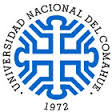El Equipo de Asistencia Sociológica a las Querellas es un equipo de estudiantes y profesionales de diferentes corrientes de las ciencias sociales que trabaja de forma voluntaria y militante con el objetivo de asistir a los querellantes en los diversos juicios contra los perpetradores responsables de los crímenes de Estado ocurridos entre 1975 y 1983 en Argentina. Una de nuestras líneas de trabajo principales consiste en la sistematización y análisis de datos obtenidos de testimonios, documentos judiciales y otras fuentes, para lo cual nos hemos valido de diversas tecnologías para registrar y procesar datos. Inicialmente nuestro acompañamiento consistió en completar los Trabajos de Recopilación de Datos (TRD) elaboradas por la Asociación de Ex Detenidos-Desaparecidos a partir de testimonios de sobrevivientes. El objetivo era relacionar a cada víctima con el centro clandestino de detención y sus perpetradores. En esa tarea la unidad de análisis era cada caso, es decir, cada sobreviviente testimoniante. A partir de ese trabajo comprendimos que el formato y el enfoque utilizados no permitían aprovechar en toda su potencialidad el valor de la información aportada por los testimoniantes y que se necesitaba mirar relaciones más amplias y complejas entre las variables que aparecían en los relatos. Luego de un proceso de años de trabajo desarrollando matrices de testimonios valiéndonos de planillas Excel, decidimos crear el sistema informático ASQ para mejorar nuestra base de datos. Este software cuenta con dos matrices de datos con ventanas de cargas y un sistema de búsquedas simples que permite agilizar y simplificar la producción de datos para los querellantes. Algunas preguntas que nos hicimos fueron ¿Puede equipararse un sistema informático de bases de datos a los elementos de necesarios para toda investigación social? ¿La tecnología puede estar al servicio de las ciencias sociales? ¿Y de análisis cualitativos? En la búsqueda por resolver las necesidades que surgían de las tareas del EASQ consideramos que las Por ello el objetivo de esta ponencia es, por un lado, compartir de qué manera relacionamos ambos campos académicos –las ciencias sociales y la informática- y reflexionar sobre nuestra experiencia en la utilización de la tecnología como soporte para la articulación entre la academia, la investigación social y la militancia política.respuestas eran afirmativas.
The Equipo de Asistencia Sociológica a las Querellas is a team of students and professionals from different branches of the social sciences that work as volunteers and activists to assist plaintiffs at the trials condemning the crimes committed by the Argentinian State between 1975 and 1983. One of our main lines of work consists in the systematization and analysis of data obtained from testimonies, court documents and other sources, using different technologies for data processing. At first, our assistance entailed completing Trabajos de Recopilación de Datos (Data Collection Work, TRD in Spanish), designed by the Asociación de Ex Detenidos-Desaparecidos based on testimonies of survivors. The goal was to connect every victim to a clandestine detention, torture and extermination centre and their perpetrators. In this task, the unit of analysis was each case, that is to say, each survivor that gave testimony. While doing this, we understood that the format and the approach used did not permit to make the most of the value of the information given by the witnesses, and that it was necessary to establish broader and more complex connections between the variables that appeared in the testimonies. After years of work developing data matrices in Excel format, we decided to create our own computer system named ASQ to improve our database. This software comprises two matrices with data entry forms and a simple search system that speeds up and simplifies the production of information for the plaintiffs. Some of the questions we asked ourselves were: could a database software be equal to all the elements necessary for an entire social investigation? Can technology be at the service of the social sciences and of qualitative analysis? In the search for satisfying the needs that arose from the work of the EASQ, we thought that the answers were affirmative.
Therefore, the aim of this paper is, on one hand, to share how we have connected both academic fields – social sciences and information technology – and, on the other, to reflect on our experience in using technology as a support for the articulation between academy, social research and political activism.



